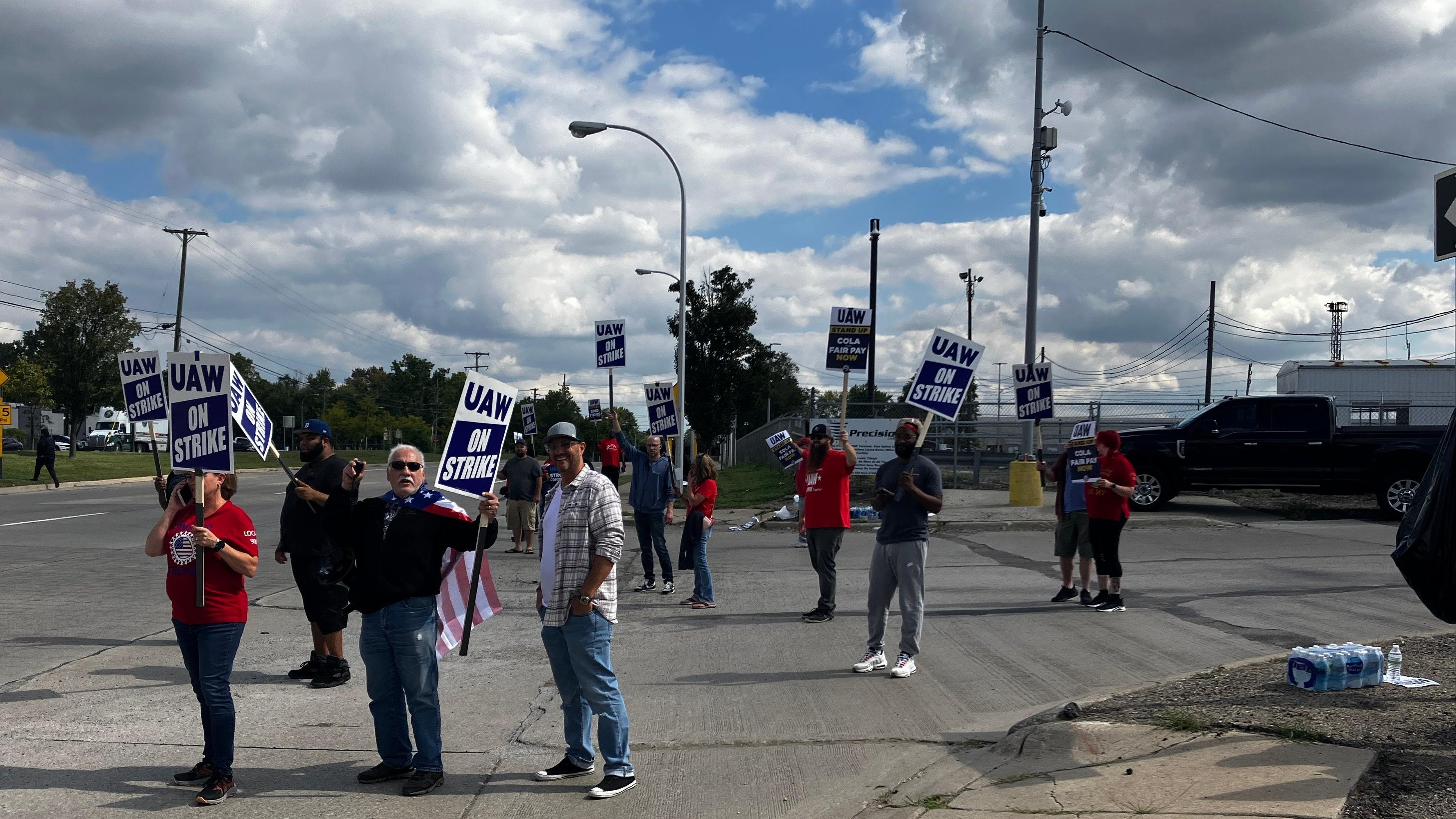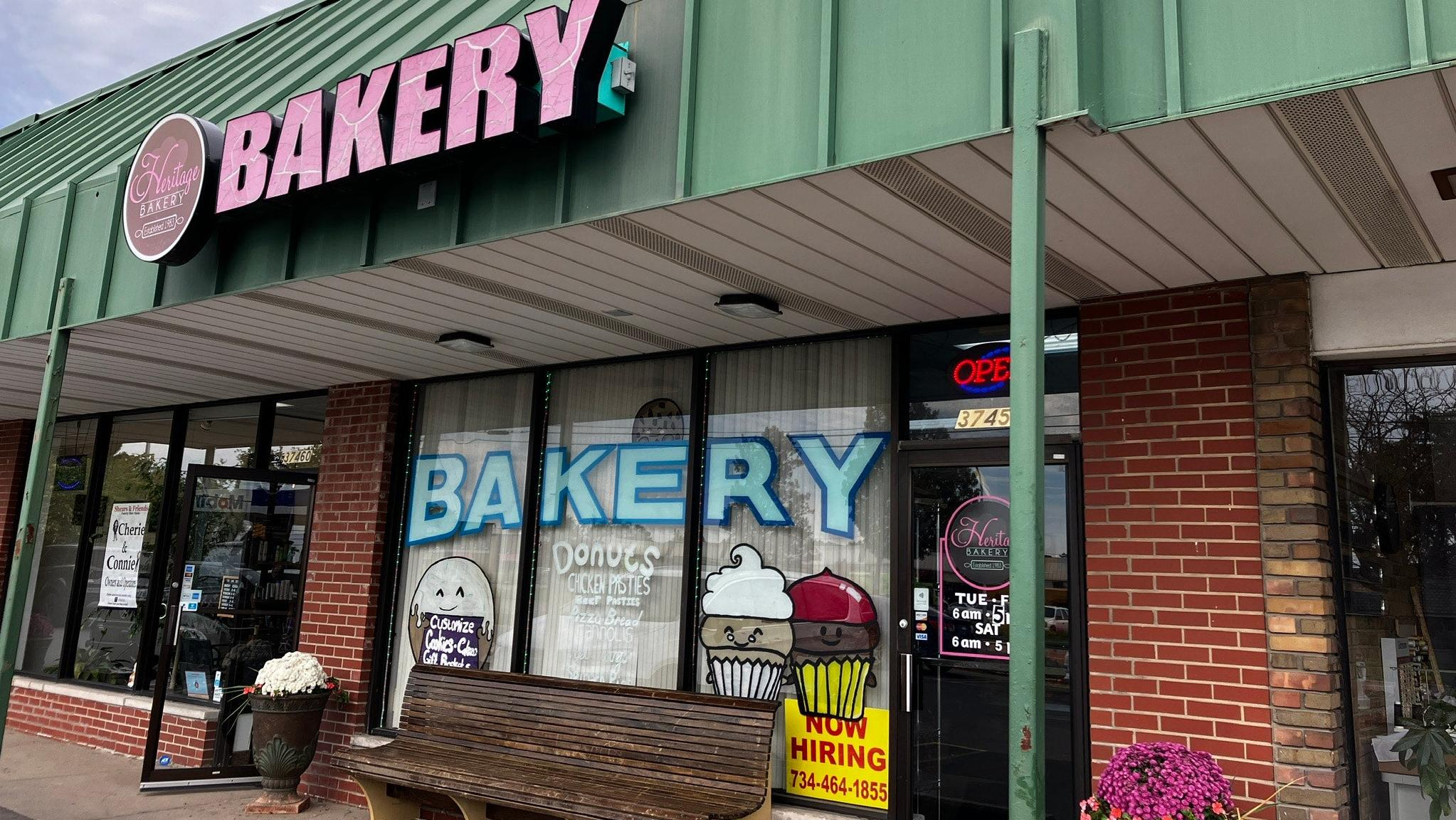Feeding Striking Workers Is A Community Effort
Local businesses and charities are stepping up to feed people on the UAW picket line.
Like her coworkers at Ford's big assembly plant in Wayne, Michigan, Ebony Kennedy only got two hours' notice on September 14 that the factory would be going on strike. Like them, she sprang into action, her duties taking place inside a union hall rather than out on the street.
"It was a surprise," says Kennedy, the community service chair for United Auto Workers Local 900. "We had to jump in."
Kennedy is coordinating a 24/7 effort to keep the plant's 4,600 workers and their families fed. Inside the union hall, where members normally would gather for events, she helped set up a combination cafeteria line, grab-and-go counter, and grocery store, where items are free to everyone.
Fresh cooked meals for striking workers
The plant's retirees, including Kennedy's mother, Carolyn Perkins, are cooking fresh meals from ingredients donated by local butcher shops and grocery stores. Kennedy says they invent a menu every day, depending on what arrives in the kitchen.
Recently, she has served hot dogs and hamburgers, two types of chili (chicken and beef), and a French toast casserole made from donated cinnamon raisin bread. Fresh blueberries and strawberries were turned into cobblers, and she's also made a peach dessert. "The food goes quick," she says, especially because workers often bring their children.
One loyal supporter of the Wayne workers is the Heritage Bakery in Livonia, Michigan, which looks like the kind of classic shop that used to be in every town. Its ample shelves are filled with all manner of tender doughnuts, loaves of pumpkin chocolate chip bread, and custom decorated cakes.
These days, boxes of those goodies are headed to picket lines. Some of them were purchased by customers who have appeared with their donations on the bakery's Facebook page, including Breeda O'Leary, chief judge of the 29th District Court in Wayne.
Donations from local franchises include pizza from Little Caesars, sandwiches from Quiznos and Jimmy John's, and meatless and vegan items from Trader Joe's. The volunteers wrap everything individually so workers can take their items to the picket line if they don't have time to sit and eat. There are also bottles of water and soda as well as diapers and toiletries.
Union locals from other industries have dropped off food, even though there hasn't been any coordinated effort to obtain donations. "People just know from word of mouth," Kennedy says.
Food banks step up
Around Detroit, and in other cities where workers have walked off the job, food-related charities have stepped in to help feed workers and their families. Harvesters, a community food nonprofit organization serving 26 counties in Kansas and Missouri, recently hosted a distribution of 170 food boxes to union members at General Motors stamping and assembly plant in Fairfax, Kansas.
That plant is not on strike, but the plant shut down when it ran out of parts supplied by GM's Wentzville, Missouri plant, which went on strike September 14. Sarah Biles, Harvesters' communications director, said union members organized the distribution of the food boxes, which included potatoes, peppers, and squash, as well as dairy items.
The UAW coordinated a similar drive during its last strike in 2019, so "we had that ongoing relationship" which kicked off the latest food distribution, she said. Biles says there has been constant demand for food from her organization, which distributed 67 million pounds of produce and other goods during the fiscal year that ended in June.
A history of feeding the picket line
These efforts to keep workers fed are part of a UAW tradition that dates back to the union's earliest days. Wives and family members cooked for GM workers taking part in the famous Sit-Down Strike in Flint, Michigan, in 1936 and 1937, which led to the company recognizing the fledgling union. On January 11, 1937, the police tried to stop food delivery, triggering a battle that injured 16 strikers and spectators and 11 officers, the Detroit News reported,
In 1941, the union organized a "food squad" to feed workers who had walked off the job at Ford, the last company to reach a contract with the UAW. Archival photos at the union's archive at Wayne State University show employees walking out of a strike kitchen with cafeteria trays.
At the Wayne union local, Kennedy says she has been working daily 12-hour shifts, but the veteran of 25 years at the plant says she considers it a mission. "I will stay all day to make sure everything goes great," Kennedy said.

